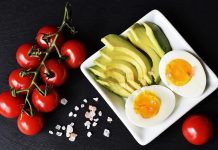In the ever-evolving landscape of health and wellness, where new trends and practices sprout like wildflowers in spring, the food journal stands as a perennial favorite. A simple notebook, or perhaps a sophisticated app, it serves as a mirror reflecting our daily dietary choices. But like any mirror, it reveals truths that can both enlighten and unsettle. This article delves into the nuanced world of food journaling, exploring its potential to transform eating habits, enhance self-awareness, and foster accountability, while also considering the pitfalls that might ensnare the unwary. Whether you’re a seasoned nutrition enthusiast or a curious novice, join us as we weigh the pros and cons of this time-honored practice, offering insights to help you decide if keeping a food journal is the right step on your personal wellness journey.
Unlocking Nutritional Awareness Through Food Journaling
Food journaling can serve as a powerful tool in enhancing one’s understanding of dietary habits. It enables individuals to gain a deeper insight into their nutritional intake, promoting mindfulness about what and when they eat. By consistently tracking meals, snacks, and beverages, individuals may start to notice patterns and triggers that influence their eating behaviors. This heightened awareness can lead to more informed food choices and the opportunity to align one’s diet with health goals.
- Pros:
- Increased awareness of eating habits
- Helps identify food intolerances
- Facilitates goal-setting and tracking
- Cons:
- Can become time-consuming
- May lead to obsessive behavior
- Requires consistency and honesty

Navigating the Pitfalls of Overtracking Your Meals
While keeping a food journal can offer valuable insights into your dietary habits, it’s crucial to be aware of the potential downsides that come with overtracking. Overtracking can lead to an unhealthy obsession with calorie counting and nutrient micromanagement. This hyper-focus can detract from the enjoyment of meals and turn eating into a stressful task rather than a nourishing experience. When every morsel is meticulously recorded, there’s a risk of fostering a restrictive mindset, which can ultimately lead to disordered eating patterns.
- Loss of Spontaneity: Constantly logging every bite can make impromptu dining feel burdensome.
- Increased Anxiety: The pressure to stay within certain limits might lead to anxiety and guilt over food choices.
- Neglect of Intuitive Eating: Overreliance on data can overshadow natural hunger and fullness cues, hindering intuitive eating practices.
To maintain a balanced approach, consider setting boundaries around your tracking habits. Perhaps designate specific days as journal-free to allow for more relaxed eating experiences. By doing so, you can still benefit from the awareness a food journal brings, without falling into the trap of overanalysis.

Harnessing Food Journals for Effective Dietary Goals
Food journals have emerged as a valuable tool for those aiming to refine their dietary habits. By meticulously documenting meals, individuals gain a clearer perspective on their eating patterns, which can be instrumental in achieving nutritional objectives. Advantages of maintaining a food journal include:
- Enhanced Awareness: Writing down everything you eat encourages mindfulness, helping to identify unhealthy habits or triggers for overeating.
- Goal Tracking: They serve as a tangible record of progress, offering motivation and insight into what works or needs adjustment.
- Personalized Insights: Over time, journals can reveal trends and correlations between diet and physical or emotional well-being.
However, food journals are not without their drawbacks. Potential downsides include:
- Time-Consuming: The meticulous nature of logging every meal can be burdensome, leading to inconsistent tracking.
- Potential for Obsession: For some, the focus on every calorie can foster an unhealthy relationship with food.
- Data Overload: Without proper analysis, the information gathered can become overwhelming, making it difficult to extract useful insights.
Balancing the benefits and challenges of food journaling is key to making it an effective tool for dietary success.

Balancing Structure and Flexibility in Daily Food Logs
Achieving the perfect balance between structure and flexibility in daily food logs can be a transformative journey. On one hand, structured logs provide a detailed framework that can help individuals track their nutritional intake with precision. This approach often involves meticulously noting down every meal, snack, and sip, which can be invaluable for those aiming to identify patterns or specific triggers. Such structure can foster a disciplined routine, offering a clear picture of one’s eating habits.
However, the need for flexibility is equally important. Life is unpredictable, and sometimes rigid logging can feel restrictive or even stressful. Embracing a more flexible approach allows for spontaneity and the freedom to enjoy food without the constant pressure of documentation. This might mean focusing on broader patterns rather than every bite, or perhaps using visual cues like photos instead of written entries. By integrating flexibility, individuals can maintain a healthy relationship with food while still reaping the benefits of a food journal. Ultimately, it’s about finding a personal rhythm that feels both manageable and insightful.
The Way Forward
As we close the pages on the intriguing world of food journals, it’s clear that these simple notebooks can serve as both a beacon of clarity and a mirror reflecting our culinary habits. Whether you’re striving for wellness, aiming to understand your relationship with food, or simply seeking to document your gastronomic journey, the choice to maintain a food journal is as personal as the entries within it. Embrace the pros, acknowledge the cons, and let your pen dance across the pages with honesty and intention. After all, the story of our eating habits is not just about what we consume, but also about how we choose to understand and engage with the narrative of nourishment. Bon appétit to your journey of discovery, whatever path you choose.


































